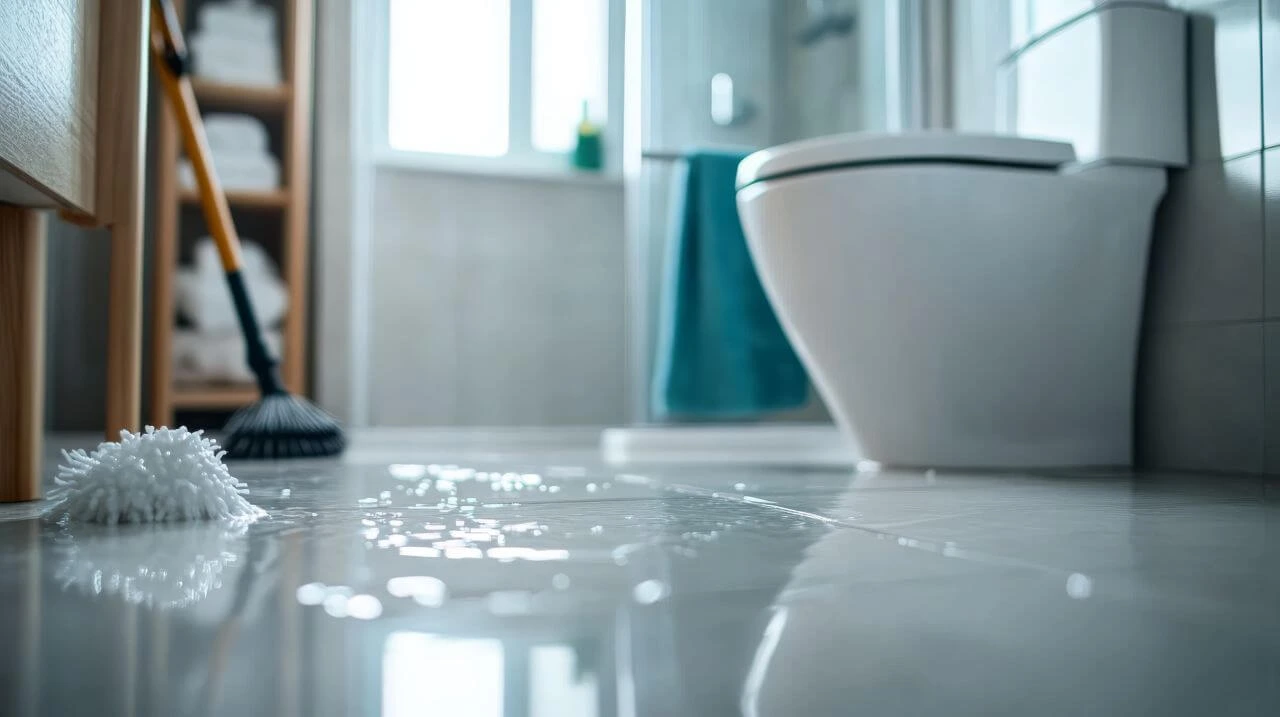Plumbing emergencies can happen when you least expect them, turning a normal day into a stressful situation. Whether it’s a burst pipe, a severe leak, or a clogged drain backing up into your home, knowing how to respond quickly and effectively can make all the difference in minimizing damage and restoring order. At Empire Plumbing & AC, we’ve been helping Arizona residents handle plumbing emergencies for over 24 years. In this guide, we’ll walk you through the essential steps to take when faced with a plumbing crisis, ensuring that you can act confidently and protect your home until the time that professional help arrives.
Common Plumbing Emergencies
Plumbing emergencies can take many forms, and being familiar with the most common ones can help you react quickly when they occur. At Empire, we’ve seen it all, and here are some of the most frequent plumbing emergencies we encounter:
- Burst Pipes: One of the most severe plumbing emergencies, a burst pipe can cause significant damage in a short amount of time. This often occurs due to freezing temperatures or excessive pressure in the pipes.
- Severe Leaks: Whether it’s from a faulty plumbing fixture, a broken pipe, or a damaged appliance, severe leaks can lead to flooding and water damage if not addressed immediately.
- Clogged Drains: While a minor clog might be manageable, a severe blockage can cause water to back up into your home, leading to potential damage and unsanitary conditions.
- Overflowing Toilets: An overflowing toilet can quickly become a messy and stressful situation when the plunger isn’t working. This usually occurs when there’s a blockage in the drain or an issue with the toilet’s internal components.
- Water Heater Malfunctions: A malfunctioning water heater can leave you with cold water, and in some cases, it can even leak or cause damage if the tank ruptures.
- Sewer Line Backups: A sewage backup is a serious issue that can lead to raw sewage entering your home, creating a hazardous environment. This type of emergency requires immediate attention to prevent extensive damage and health risks.
Does This Plumbing Issue Require Emergency Services
When faced with a plumbing issue, it’s important to determine whether the situation requires immediate emergency services or if it can wait a day or two. Knowing the difference can save you time, stress, and potentially even money.
Some plumbing problems need to be addressed right away to prevent extensive damage or health hazards. For instance, burst or frozen pipes, major leaks, sewer line backups, and overflowing toilets usually warrant a call to an emergency plumber. These issues can lead to significant water damage, unsanitary conditions, and even structural damage to your home if not handled promptly.
Other plumbing problems, while still serious, may not require immediate emergency intervention. Minor leaks, slow-draining kitchen sinks, or a water heater that’s not working at full capacity can often wait a day or two as long as you take some precautionary steps. For example, placing a bucket under a slow water leak or turning off the water valve to a problematic area can help mitigate damage until a plumber can arrive.
If you’re unsure whether your plumbing issue is an emergency, consider the potential impact of waiting. Is your home actively flooding? Are you at risk of losing access to essential services like your toilet or shower? If the answer is yes, it’s best to err on the side of caution and call for an emergency plumber.
Emergency Plumbing Services
At Empire Plumbing & AC, we understand how stressful a plumbing emergency can be. While we do not provide emergency services outside of our regular working hours, we are committed to offering prompt and reliable assistance during business hours. In most cases, we can get to your property the same day to address your plumbing issue quickly and efficiently.
If you’re facing a plumbing issue that needs immediate attention, don’t hesitate to contact us as soon as our business hours begin. We’ll work swiftly to schedule a visit, diagnose the problem, and provide the necessary repairs to restore your plumbing system.
What to Do Step-by-Step
Knowing the right steps to follow can make a significant difference in how effectively you handle the situation. In the following sections, we’ll guide you through a step-by-step process that you can follow in any plumbing emergency. From shutting off the water supply to contacting a professional, these steps will help you manage the crisis and set the stage for a successful repair.
Turn Off the Water Supply
The first and most crucial step in any plumbing emergency is to turn off the water supply. This action helps prevent further water damage and gives you time to assess the situation. Locate the main water shut-off valve in your home, which is usually found near where the main water line enters the house. Turn the water valve clockwise to stop the flow of water into your home. If the issue is localized, such as a specific appliance or fixture, you can also turn it off directly at the water source.
Check the Hot Water Heater, Toilets, Pipes, and More
After you’ve turned off the water supply, the next step is to inspect key areas of your home for any signs of damage or potential issues. Start with your hot water heater—look for leaks, unusual noises, or any signs that the unit might be malfunctioning. Then, move on to your toilets and pipes. Check for leaks, clogs, or any signs of damage around these fixtures. It’s also important to inspect other plumbing-related areas such as sinks, faucets, and appliances like dishwashers and washing machines. Identifying all the problem areas will help you provide accurate information when you contact Empire Plumbing & AC, allowing our technicians to address the issue more effectively when they arrive.
Is There Water Damage?
Once you’ve checked your plumbing fixtures and pipes, it’s crucial to assess whether any water damage has occurred. Look for visible signs such as wet floors, damp walls, or ceiling stains, which can indicate that water has spread beyond the immediate area of the issue. Pay attention to any areas where water may have seeped into flooring, carpets, or behind walls, as these can lead to more significant damage over time if not addressed promptly.
If you notice water damage, take steps to minimize its impact. For example, move furniture and belongings out of the affected area, use towels or mops to soak up excess water, and set up fans to promote drying. Identifying and addressing water damage early can prevent more serious problems like mold growth or structural damage.
It’s Time to Call a Professional Plumber
After taking initial steps to control the situation, it’s time to call in a professional plumber to handle the repairs. Plumbing emergencies often involve complex issues that require the expertise and equipment of a trained professional.
When you contact us, provide as much detail as possible about the situation, including what steps you’ve already taken and any visible signs of potential damage. This information helps our technicians prepare for the job and bring the right tools and parts to address the problem quickly.
Remember, prompt action is key to minimizing damage and restoring your home’s plumbing system. Don’t delay—call Empire as soon as you’ve secured the situation to ensure fast, reliable service.


